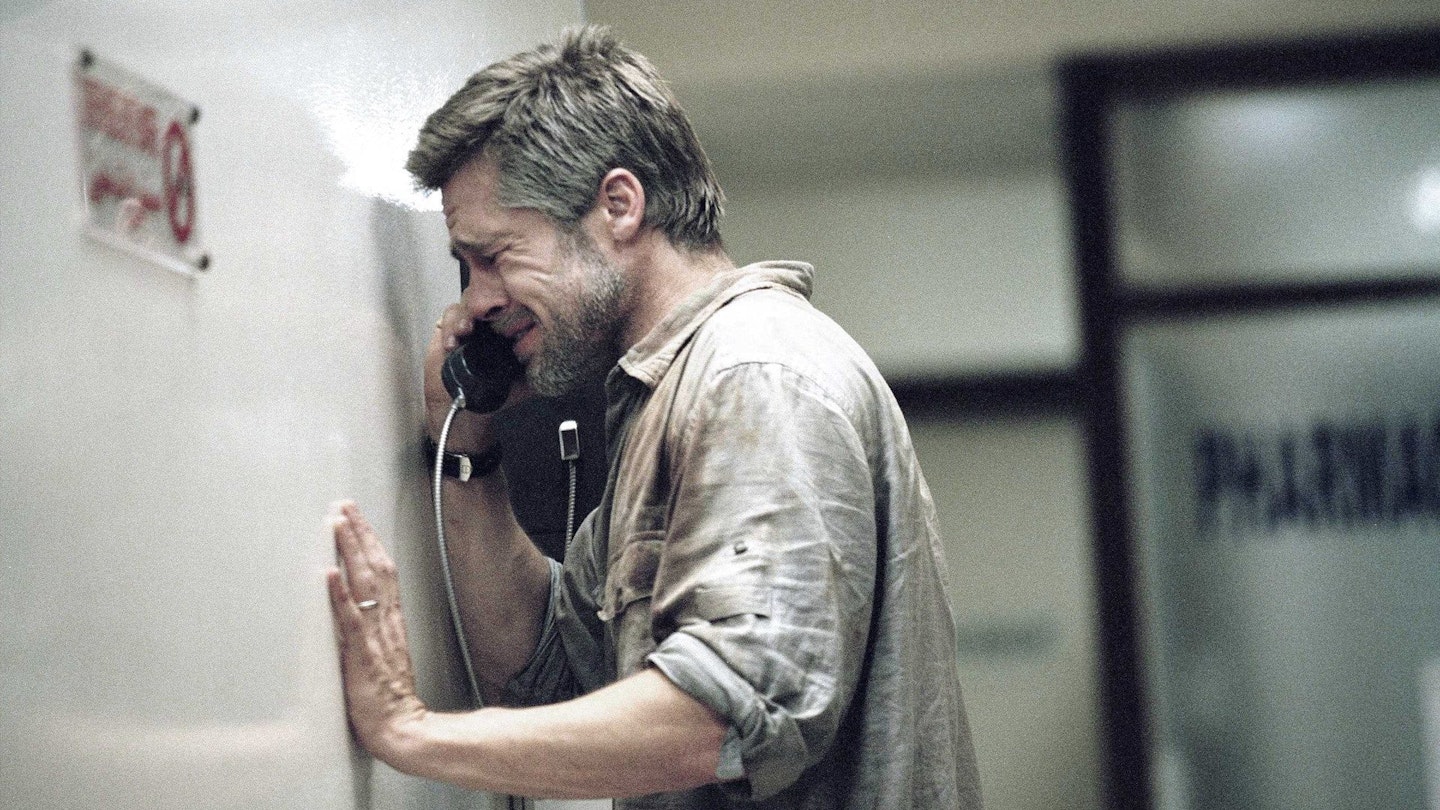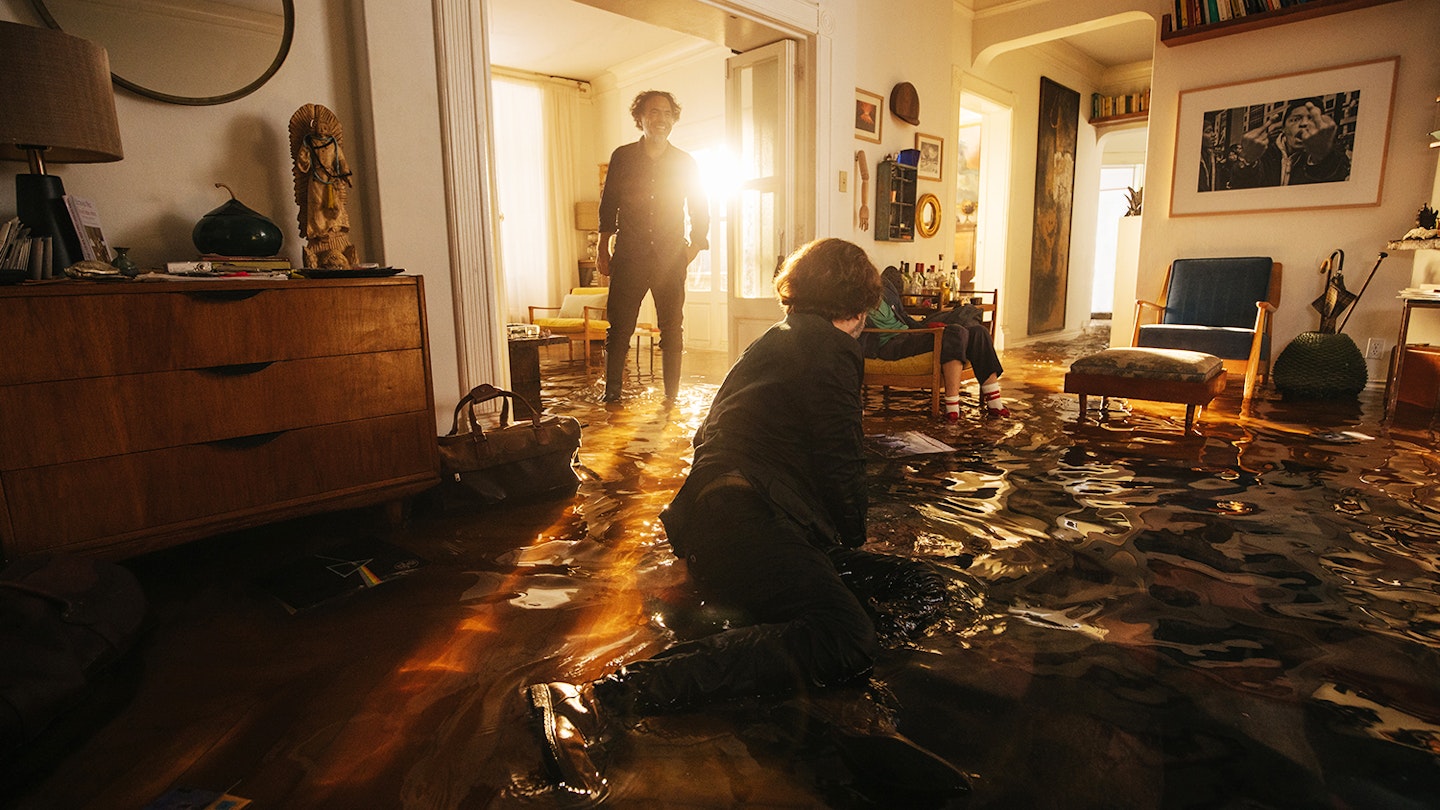Falling into the Interlocking Stories Used To Make A Big Point About The Human Condition subgenre (see also Grand Canyon, Crash), Alejandro González Iñárritu’s riveting closure to the trilogy he started with Amores Perros and 21 Grams boasts a bigger dramatic, thematic and cinematic appetite than most directors muster in an entire career. Babel takes the multiple-stories-over-shifting-time-frames gambit of its predecessors but plays it over the whole globe, as a single act of kindness reverberates with shattering consequences around Morocco, the US, Mexico and Japan (happily, the ripples never reach Lyme Regis). The result is terrific cinema, built on across-the-board great performances, searing imagery, heart-stopping moments and surprising flashes of humour, all coalescing into a raw vision of a world in tatters.
Iñárritu and screenwriter Guillermo Arriaga skilfully juggle and juxtapose the intersecting stories, carefully building up dread and emotional tension as you try to figure out how the stories fit together and how they will play out. But what is more astonishing is Babel’s scope. From the opening story, which sees a family of Moroccan goat herders torn apart after buying their first gun, Iñárritu encompasses the Big Themes Of Our Age — globalisation, immigration, terrorism, prejudice, the best way to kill a chicken — but never lets his point-making dwarf his sense of people and place. Like a New Age neo-realist, he has a compassionate eye for human stupidity, never judging his characters as their foibles force the various crises to escalate. If Babel’s central thesis — the things that cause us pain are universal, not unique — is bleak, Iñárritu’s humanism tempers his pessimism.
In what might be a career best, Brad Pitt, borrowing the salt-and-pepper hair/stubble combo that George Clooney uses to denote seriousness, finds new notes of intensity and grief as a tourist holed up in a Moroccan village, struggling to keep it all together as his wife, the victim of a freak accident, fades away. Cate Blanchett, with little else to do but bleed and shiver, still manages to etch out a character of a woman uncomfortable with her lot. It’s to everyone’s credit that the two stars feel an integral part of the ensemble rather than mere stunt casting.
Elsewhere, Iñárritu fave Adriana Barraza radiates maternal warmth and innate decency assaying the au pair caught between her job nannying in San Diego and family obligations in Mexico, making her anguish all the more heartbreaking as she is lead astray by her out-of-control nephew Santiago (Gael García Bernal on fire-cracking form). Yet, the real stand-out here is Rinko Kikuchi, astonishing as Chieko, the Japanese deaf-mute teen trying to cope with the death of her mother, the cruelty of her peers and the hormones racing round her body like the Indy 500. By turns surly, sexually provocative (watch her, out of nowhere, lick her dentist’s face) and distraught, if there’s any justice in the world — and Babel persuasively argues that there isn’t — she would be a lock for a Best Supporting gong.
Working in cahoots with Brokeback lenser Rodrigo Prieto, Iñárritu beautifully evinces the sense of dusty village life, a Mexican wedding teeming with joy and warmth, and Tokyo’s pulsing teenage subculture — in a bravura moment following Chieko on a night out clubbing, the soundtrack cuts from the pounding sounds of Michael Jackson’s Don’t Stop ’Til You Get Enough to absolute silence, perfectly conveying Chieko’s sense of dislocation, both sensory and emotional. Iñárritu is also a terrific director of children, guiding four naturalistic child performances — two Moroccan, two American — without a hint of cuteness.
Some may find the collage of coincidental dramas overwrought, but Iñárritu doesn’t deliver any pat answers. As much as it presents an eloquent argument for global understanding, there are no ‘We Are The World, We Are The Children’ platitudes offered up. Instead, Iñárritu lets the cultures collide and the different tongues babble, but offers no way through the mire, just a sensible awareness of the despair created by differences. A final moment of one hand squeezing another is touching, but does little to dilute the portrait of a world soaked in sadness.








